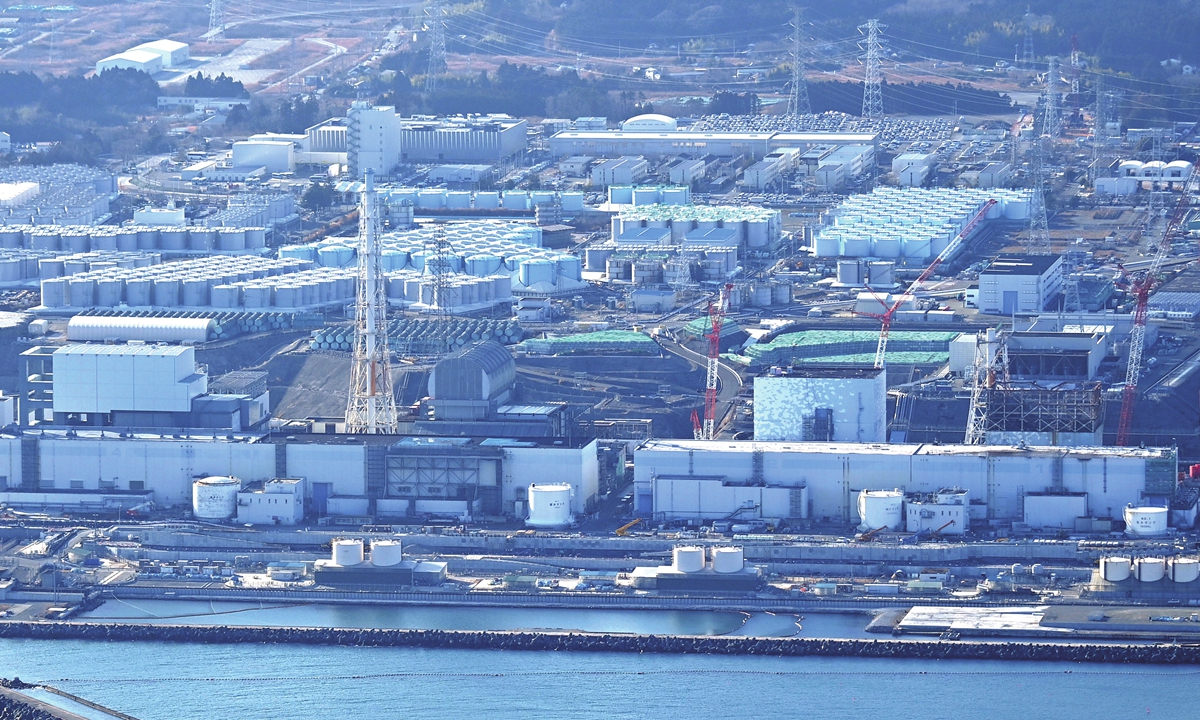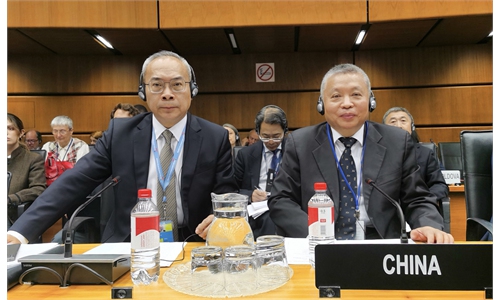International pressure urged as Japanese government continues to whitewash ocean release of nuclear-contaminated wastewater

Damaged No.1 to No.4 reactors are seen at Fukushima Daiichi Nuclear Power Plant on January 19, 2023 in Okuma, Fukushima, Japan. Photo: VCG
The ocean is the world's shared asset, not Japan's sewer, the spokesperson of the Chinese Ministry of Foreign Affairs stated on Wednesday, adding that Japan's unilateral decision to dispose of nuclear-contaminated wastewater into the ocean has undermined the common interests of all humanity and further eroded Japan's credibility in the international community.
The radioactive elements in the marine fish caught in the harbor of the Fukushima Daiichi Nuclear Power Plant in Japan far exceed safety levels for human consumption, according to a report issued by the plant's operator Tokyo Electric Power Company (TEPCO) on Monday.
In particular, the data show that the content of Cs-137, a radioactive element that is a common byproduct in nuclear reactors, is 180 times that of the standard maximum stipulated in Japan's food safety law.
The crippled Fukushima Daiichi nuclear power plant has sent seawater into an underwater tunnel designed to release nuclear-contaminated wastewater into the ocean, according to Japanese media outlets on Tuesday, which is seen as a pilot for the formal dumping plan that has been widely criticized.
The plant's operator, Tokyo Electric Power Company (TPECO), started the process on Monday afternoon. The tunnel has been filled with some 6,000 tons of seawater, which will be guided from the plant to a point about one kilometer offshore, said the company, as quoted by NHK on Tuesday.
The water release system is almost complete, except for a reservoir that will store treated water before its release. The utility plans to complete all construction work by the end of this month, said NHK.
In response, Chinese Foreign Ministry spokesperson Wang Wenbin said the Japanese government has repeatedly attempted to whitewash the issue of nuclear-contaminated wastewater, claiming the water is harmless and the discharge a reasonable solution. However, the facts have consistently contradicted these assertions, he added.
If the nuclear-contaminated wastewater is truly as safe and harmless as the Japanese side claim, then why don't they simply discharge it into domestic lakes? Why are they insisting on constructing and hastily initiating the ocean discharge tunnel, Wang asked.
The answer given by Japan's own expert committee is quite clear, Wang said, adding that the discharge of the nuclear-contaminated wastewater into the ocean is the most cost-effective option for Japan, and it poses the least risk to its own immediate environment. This practice, which saves money for the Japanese side but shifts the burden to the rest of the world, is extremely selfish and irresponsible.
Without sufficient evaluation of alternative disposal methods, the Japanese government unilaterally decided to discharge the nuclear-contaminated water into the ocean. This action, driven by its own interests and detrimental to the common interests of all humanity, fails to convince people from home and all over the world, Wang remarked.
Global Times

